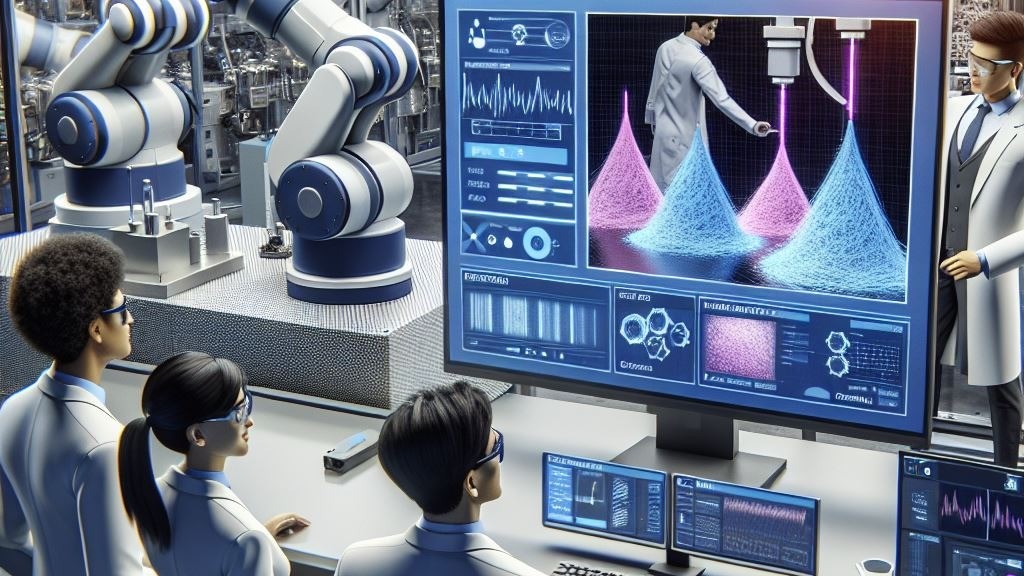In today’s rapidly evolving industrial landscape, AI inspection for smart factories is revolutionizing the way we approach quality control. By integrating advanced technologies into production lines, manufacturers are experiencing unprecedented improvements in efficiency and product quality. This transformation is crucial for maintaining competitiveness in the modern market.

The Need for AI in Modern Manufacturing
Manufacturing has always been at the forefront of technological innovation. As industries strive to meet increasing consumer demands, the need for precision and speed in production processes has never been greater. AI inspection systems are designed to address these challenges by providing real-time, accurate assessments of product quality.
What is AI Inspection?
At its core, AI inspection involves using artificial intelligence to automate the examination of products during the manufacturing process. This technology can identify defects, ensure compliance with standards, and optimize the overall production workflow. Unlike traditional methods, AI systems can analyze vast amounts of data quickly, reducing human error and increasing efficiency.
Benefits of AI Inspection in Smart Factories
- Increased Accuracy: AI systems can detect even the smallest defects that might be missed by human inspectors.
- Cost Efficiency: By reducing the need for manual inspections, factories can lower labor costs and minimize waste.
- Scalability: AI systems can easily adapt to different production lines and scales of operation.
How AI is Implemented in Smart Factories
The implementation of AI inspection systems in smart factories involves several key components. These include advanced sensors, machine learning algorithms, and data processing units. Together, these elements work to create a seamless inspection process that integrates with existing manufacturing systems.
Role of Machine Learning
Machine learning is a critical element of AI inspection. It allows systems to learn from data, improving their accuracy and efficiency over time. By analyzing patterns and anomalies, machine learning models can predict potential defects and optimize production processes.
Integration with Existing Systems
One of the significant advantages of AI inspection is its ability to integrate with existing manufacturing infrastructure. This means factories can implement AI solutions without the need for extensive overhauls, making the transition smoother and more cost-effective.
Challenges in AI Inspection for Smart Factories
While the benefits of AI inspection are clear, there are also challenges that manufacturers must navigate. These include the initial cost of implementation, the need for skilled personnel to manage AI systems, and the integration of AI with legacy systems.
Overcoming Implementation Costs
Although the initial investment in AI technology can be significant, many companies find that the long-term savings and efficiency gains justify the expense. Additionally, the cost of AI technology continues to decrease as it becomes more widespread.
Training and Skill Development
As AI becomes more prevalent, there is an increasing demand for skilled workers who can operate and maintain these systems. Investing in training and development is crucial for maximizing the benefits of AI inspection.
Future of AI Inspection in Manufacturing
The future of AI inspection in manufacturing looks promising, with ongoing advancements in technology and increased adoption across industries. As AI systems continue to evolve, they will become even more integral to the manufacturing process, driving further improvements in quality and efficiency.
Advancements in AI Technology
Continuous advancements in AI technology are expected to enhance the capabilities of inspection systems, allowing for even more precise and efficient quality control. Innovations such as unsupervised learning and semantic segmentation are paving the way for more sophisticated inspection methods.
Broader Adoption Across Industries
As more industries recognize the benefits of AI inspection, adoption is expected to grow. This will lead to increased standardization and enhanced collaboration between manufacturers, technology providers, and researchers.
Conclusion
AI inspection for smart factories is more than just a trend; it is a fundamental shift in how we approach manufacturing. As technology continues to evolve, it will play an increasingly vital role in ensuring product quality, efficiency, and competitiveness in the global market.

FAQ
What are the main benefits of AI inspection?
AI inspection offers several benefits, including increased accuracy, cost efficiency, and scalability. These systems can detect defects more precisely and integrate seamlessly with existing manufacturing processes.
How does AI inspection improve quality control?
By utilizing advanced algorithms and real-time data analysis, AI inspection systems provide accurate assessments of product quality, reducing defects and ensuring compliance with industry standards.
Is AI inspection suitable for all manufacturing industries?
While AI inspection is highly adaptable, its suitability depends on the specific needs and infrastructure of each industry. Many sectors, including automotive, electronics, and pharmaceuticals, are already benefiting from this technology.
This article contains affiliate links. We may earn a commission at no extra cost to you.

